Published Nov 9, 2021
Trek Director's School: Robert Duncan McNeill
The Voyager actor was determined to direct from day one, and he wasn't going to take no for an answer.
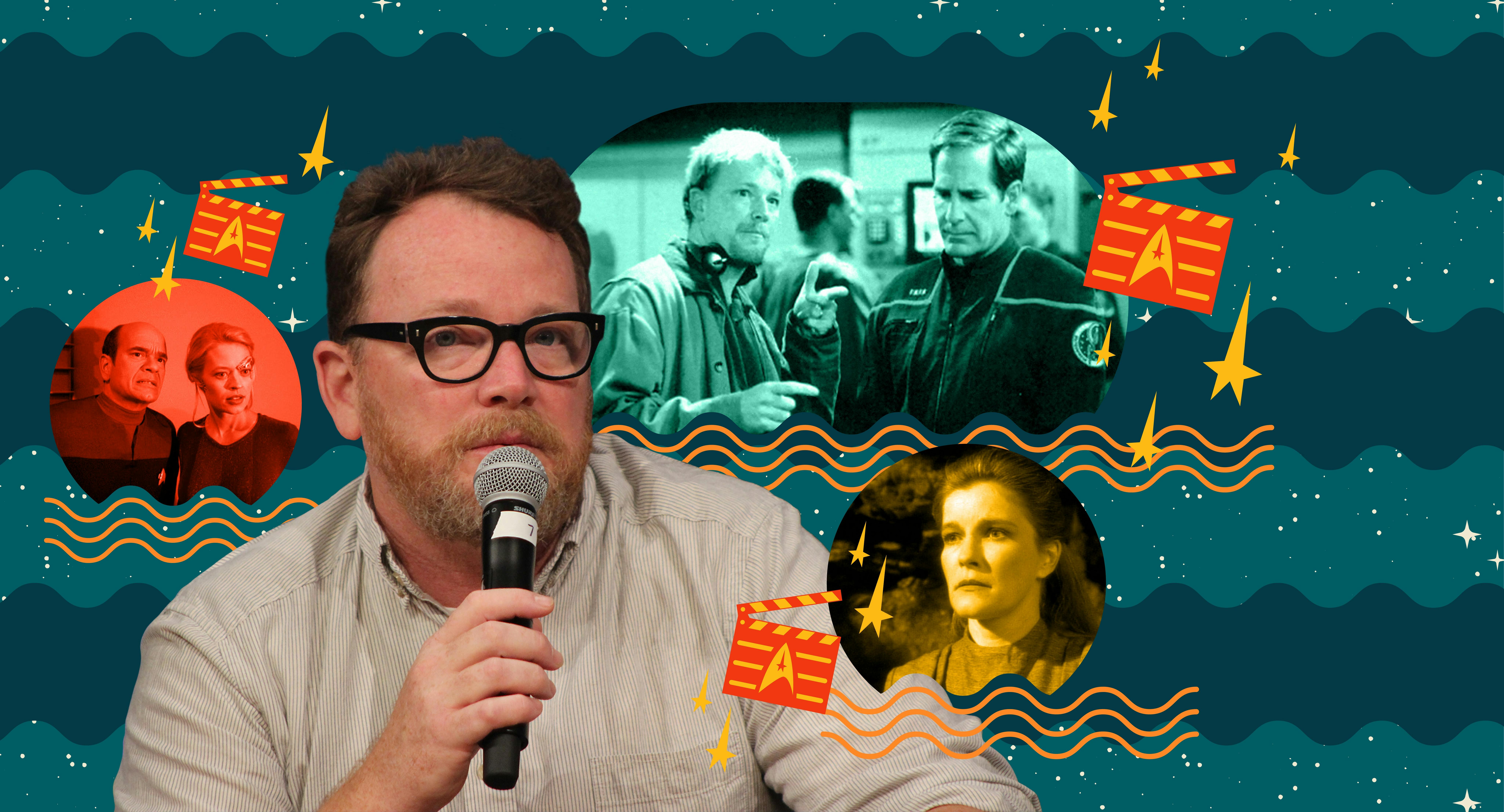
StarTrek.com
Robert Duncan McNeill saw an opportunity and seized it. Much like Jonathan Frakes and Roxann Dawson, McNeill — Star Trek: Voyager's Tom Paris — leveraged the opportunity to direct Trek into a second career as a director and producer. His long list of post-Trek shows includes Medium, Las Vegas, Chuck, Smash, The Mentalist, Blue Bloods, The Arrangement, Girlfriends’ Guide to Divorce and The Orville.
But it all started with Voyager, as McNeill – to an extent – went through the unofficial Trek directors’ school initiated by Rick Berman and ultimately called the shots on eight hours of Trek, namely the Voyager episodes “Sacred Ground,” “Unity,” “Someone to Watch Over Me” and “Body and Soul” as well as the Enterprise's “Cold Front,” "The Breach,” “Twilight” and “Countdown.”
We chatted with the amiable McNeill backstage during 2018's Destination Star Trek Germany in Dortmund, where he took us through his Trek directing experiences, and even talked about the possibility of directing on Discovery.
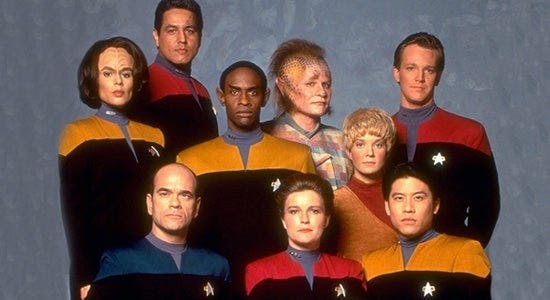
startrek.com
StarTrek.com: Is it true that you asked Rick Berman about directing Voyager while you were shooting the pilot?
Robert Duncan McNeill: Yes. My memory is that literally on day one of the pilot, we — Rick, Garrett Wang, Brannon Braga, and I — were walking away from the sound stage and I said to Rick, "You know, I've been observing directors for a few years now, on different shows, but every show I get on seems to get canceled before we complete a full season. So, I haven't had a chance to direct on anything up until now. I've been shadowing and observing, and you guys have had a history of letting actors direct. So, I'm just letting you know..."
And he said?
RDM: "Yeah, we'll see. In a couple of years. Let’s get the show going, and we'll see." I was like, "No, no, I want to direct first season, because I've been on shows that got canceled. As much as I believe this will run a long time, whatever it takes, I want try to direct as soon as possible. Will you let me know what I need to do?"
I think that first day he thought it was just a lot of talk. But I kept speaking to him. I talked to Frakes and other people who’d done it. I started spending time in editing and screenings, particularly screenings when Rick was in the room. I wanted to hear what he liked, what he didn't, how he thought, how things could’ve been directed better... All of that.
Which Trek directors did you shadow?
RDM: Les Landau. Jonathan [Frakes]. Rick Kolbe. Because I'd been shadowing directors and I'd been on the set a long time, I felt like where I was learning the most was in the editing room, going to post, sitting in production meetings, listening to how all the department budgets worked. Things like that.
“Sacred Ground” marked your Voyager directing debut. What were you feeling heading into it?
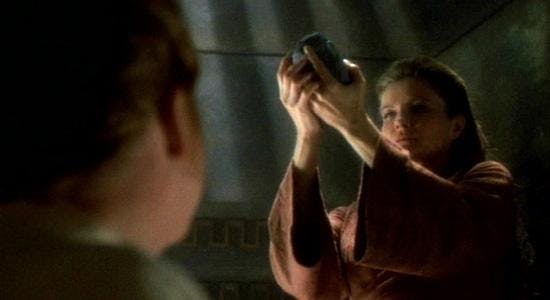
RDM: I was excited. I was ready. I was terrified. You run on adrenaline that first time or two, or 12. You don't know what you don't know when you start out directing. That's good, in a way, because, you're not locked into tricks and things you've done before. I've done enough episodes now that if I get into a situation, I can be like, “OK, I know how to get out of this. I know what tricks to use.” That's not always the most creative or the best way to do it. So, I think in the beginning, sometimes, being a little naïve about things is good.
How helpful was it that your first episode was pretty talky and focused on Kate Mulgrew?
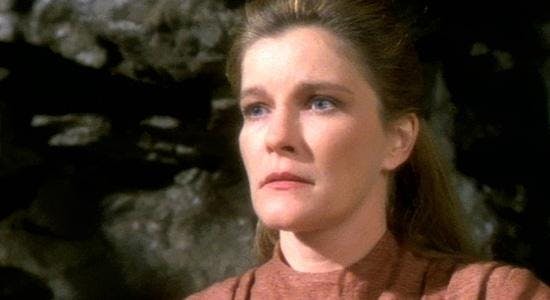
RDM: It was a very talky episode. It wasn't tons of FX and action that you needed to worry about. That was probably a double-header of help. Kate was great. The guest cast we got was super strong. I felt happy to have those actors, Becky Ann Baker and Estelle Harris and Harry Groener. They were all so good.
Have you seen "Sacred Ground" recently? What did you think?
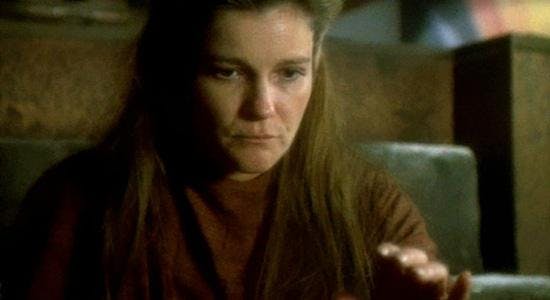
RDM: I actually did see it, last year. There were a couple of places where I remembered getting into trouble a little bit with some FX moments. [Also], there was a whole sequence in this vision chamber where Kate goes in, walks around this altar and sticks her hand in the basket. Then, she has these visions. I look back on that, and I would’ve done it differently. I think.
You went on to direct three more Voyager episodes. Which were you happiest with, and why?
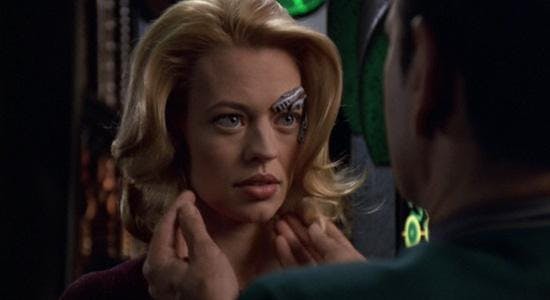
RDM: “Someone to Watch Over Me.” I think that was my best episode. It had comedy. I've been lucky enough to be able to do not just one-hour dramas, but comedy, over the years, as a director. Though my background as an actor wasn't heavy in comedy, I just feel comfortable in that genre. I like working on lighthearted scenes with actors and characters. I find it satisfying. I feel like I have a good radar for comedy. When a director doesn’t have a good radar for comedy, they can push it too far or miss opportunities. It requires a very light touch. that's what I really enjoyed about “Someone to Watch Over Me;” it was a rare Voyager episode with some lighthearted moments, but also the romance.
Which episode of Enterprise were you most satisfied with?
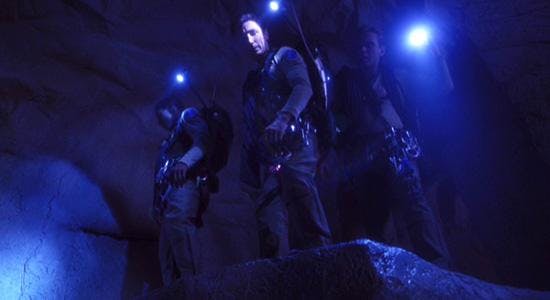
RDM: The episode where the boys went down to the center of the planet. I loved that because it was a real production challenge. I was happy with the way I was able to plan out that whole journey of rappelling and tunnels without having much of a set. We had 30 feet of rocks and that was it. So, to create those scenes with a couple of visual FX moments was exciting. There was a moment in the script, I think it was something like they slip and fall. It was a smaller sequence, initially. I remember pitching the idea of the Romancing the Stone sequence where they're sliding down the waterfall. I said, “We can build a slide on our little corner rock area. I can drag them across the floor. We can make it seem like they're falling half a mile down when, really, they're falling 15 feet.” I was excited about that sequence. Funny what you think of years later.
How open would you be to directing Discovery if the opportunity arose?
RDM: The last few years, there's been a seismic shift toward female and diverse directors. That reality now has meant that what used to be normal — which was a lot of white guys, to be quite honest — has changed. It's a wonderful thing that's happening. Discovery does a limited number of episodes, and a priority there is to get female and diverse directors. So there are fewer opportunities for people like me, which is a great thing. But, yeah, if the opportunity arose to direct Discovery and I fit what they needed and it fit my schedule, I'd love to do it.
This interview has been edited and condensed.

